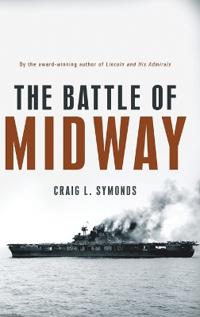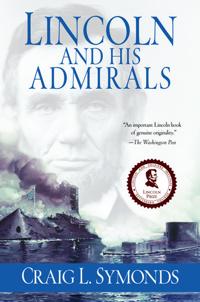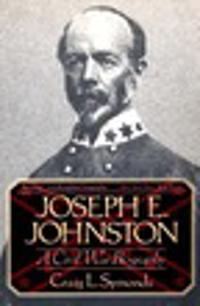The Battle of Midway (Inbunden)
avCraig L. Symonds
ISBN: 9780195397932 - UTGIVEN: 201110There are few moments in American history in which the course of events tipped so suddenly and so dramatically as at the Battle of Midway. At dawn of June 4, 1942, a rampaging Japanese navy ruled the Pacific. By sunset, their vaunted carrier force (the Kido Butai) had been sunk and their grip on the[...]
Lincoln and His Admirals (Pocket)
avCraig L. Symonds
ISBN: 9780199751570 - UTGIVEN: 201010Abraham Lincoln began his presidency admitting that he knew "but little of ships," but he quickly came to preside over the largest national armada to that time, not eclipsed until World War I. Written by naval historian Craig L. Symonds, Lincoln and His Admirals unveils an aspect of Lincoln's presi[...]
Joseph E.Johnston (Häftad)
avCraig L. Symonds
ISBN: 9780393311303 - UTGIVEN: 199409General Joseph E. Johnston was in command of Confederate forces at the South's first victory Manassas in July 1861 and at its last Bentonville in April 1965. Many of his contemporaries considered him the greatest southern field commander of the war; others ranked him second only to Robert E. Lee. Bu[...]
Stonewall of the West (Häftad)
avCraig L. Symonds
ISBN: 9780700609345 - UTGIVEN: 199810To Jefferson Davis, he was the "Stonewall of the West"; to Robert E. Lee, he was "a meteor shining from a clouded sky"; and to Braxton Bragg, he was an officer "ever alive to a success." He was Patrick Ronayne Cleburne, one of the greatest of all Confederate field commanders. An Irishman by birth, C[...]
The Battle of Midway (Pocket)
avSymonds, Craig L
ISBN: 9780199315987 - UTGIVEN: 2013-10-31The Battle of Midway in the central Pacific, on the morning of June 4, 1942, marked a dramatic turning point in the Second World War, when Allied forces seized the upper hand from the Axis powers. Lincoln Prize winner Craig Symonds' riveting, global account of the Battle is now in paperback.[...]







